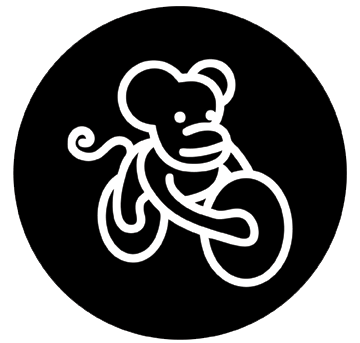Lori Sambol Brody
@lorisambolbrody
She’s a little in love with the band’s bass player and his fingers sliding across the fretboard and matching the rhythm of her heart, and also a little in love with the college boy who snuck her into the Whisky even though she’s only fifteen, who slams against her in the pit so gently she mistakes it for love, who presses his flask and pills into her palm and waits with her at the backstage entrance so she can inhale leather and sweat because she’s this close to the bass player and he gives her the onceover twice and her ears ring and oh god the spinning, who bends her over the hood of his Mercury in a Hollywood alley, his palm spread on her back like she’s a bug pinned for study, her forehead against metal, the boy who ignores her two months later when she wants—no, needs—money, and twenty years later she’s in another club watching the same band, a little in love with the same bass player singing the same songs, a little in love with the man standing beside her and the girl five months growing inside, the music inside her like the Santa Ana winds blustering through the canyons and filling all hollows, the rhythm waking both a memory and the baby, her husband’s hand rubbing her back, the baby kicking her bladder, her hands cupping the swell of her stomach, thinking of rabbits reabsorbing their fetus when it’s too dangerous to give birth, and the bass player plays his solo with the spotlight shining in his eyes.
About Your Status
Alex Kudera
@kudera
Correction: Life is supposed to suck, and then you’re obliged to die, and I’m sorry if there has been any misunderstanding about your status with our company, in our marriage, on our planet, as a citizen of the greatest country on earth, or while waiting for the next teller to attend to all of your banking needs.
Werewolf
Ross Showalter
@thisross
When David turns eighteen, the same year his father drives up and tries to apologize again and again in overly pressed shirts for a life’s worth of booze-soaked mistakes, and the winter outside takes David’s side and encrusts his father’s windshield in diamond ice, and the winter somehow manages to rake through all four tires, four tears each—a fact that the sheriff takes in with perhaps too much visible glee, equal only to David’s mother; and the sheriff’s son takes in David for two weeks’ of nights and kisses him open-mouthed, open-hearted with a kind of hunger David didn’t know anyone could taste—the same year David finally figures out he doesn’t like women; he goes to his mother, sobbing, wondering aloud what he’d done to be put in this position, wondering inside how many times he can repent at mass before the priest figures him out only to be shushed and told by his mother that nothing was wrong with him as long as he didn’t abuse anyone or anything, the same year that David goes to the sheriff’s son one midwinter midnight and tells him with his mouth and his hands, careful, careful, careful, I can break, and the sheriff’s son touches him and whispers in the crook of his shoulder, tell me where it hurts, tell me where to touch, and David surrenders his secrets while on his knees and finds scratches on his thighs the next morning, four scratches although his skin doesn’t give like tire rubber, and he walks to high school every morning in this Minnesotan grave and still finds his father’s car in their driveway even though the ice stopped trapping it days ago, and he reluctantly leaves the sheriff’s son with promises to come back even as something in his heart (the old fear of the unknown) urges him not to but he keeps climbing to the son’s window in the early, pitch hours of the morning and avoiding the front door and the pictures of the sheriff’s son and the sheriff’s wife—the latter thirteen years deceased—because he doesn’t want to face another family tragedy, because the resolve from the sheriff’s son crushes the feeling of defeat and helps him to live through weeks and months of seeing his father enter and exit David’s house, a house that has never held a father before, until one day his father finds his FBI licensure and ego shredded and his clothes bearing the same marks that David found on his own legs and David somehow finds the voice to kick his father out when he returns home from the sheriff’s son and finds his father in the April haze swallowing Hennessy and his father calls him maricon and David calls him bastard and then locks the doors and windows and mops up the blood he finds hours later and he thought the unholy snarling and screaming was part of a dream and he doesn’t say a thing and neither does his mother when she comes home from a night shift full of cleaning up other messes and sees the bloody paper towels in David’s hands—she just nods and goes to bed and he doesn’t say a thing when he finds shreds of his father’s shirt in the sheriff’s son’s trash can and it won’t be discussed anymore, instead he just kisses the sheriff’s son with the same hunger that scared him then and scares him now, but now it’s June and a new beginning after high school is done, David kisses the sheriff’s son under pale moonlight and tells him, show me everything about you, and what the son has to show is the most beautiful thing he’s ever seen.
A monologue for those who ask me why I paint my nails
Josh Levario
@josh_levario
I do it because I want to; sometimes I do it because nobody wants me to; I guess I started doing it for kicks; now I do it to impress girls without knowing that it impresses them; why pink?; pink is to show people I am not afraid of being gentle, that it’s okay to love pink and be strong; women are really strong; sometimes I think about my mother and fall down in awe; she’s definitely a deity; sometimes she paints her nails too; I think I got a lot of my qualities from her, although my hands look like my fathers, just softer; my voice?; that is something I could control too; I think everyone talks too loud and too much; if you listen to what the wind says to the trees while it slivers through the limbs and leaves, you’d be a teary mess; I read Siddhartha once and stopped by every tree I came across for weeks; I would also stop in front of puddles, using them as a mirror to map my face full of reasons; do you need a reason?; no one needs reasons, but the world demands them anyway.
Combat Glide
Matthew Young
@mcyoung0
I take my daughter to the grocery store and she sits in the seat at the rear of the shopping cart and jingles my car keys and smiles at passersby who smile back while I hate them and think protective parental thoughts and lean close to her, obscure her, encase her, and move my feet from heel to toe, gliding—the combat glide—a movement I practiced for hours, days, on parade decks and then uneven terrain, making my body as small a target as possible, moving deliberately, heel, toe, heel, toe, all the while thinking, slow is smooth, smooth is fast, a mantra from our sergeants who made us walk with quarters on our front sight posts and when the quarters dropped made us drop with them as well, rifles on top of our hands, pushing into the concrete or dust until the sergeant said to stop, and I think about that while I’m moving through the store heel, toe, heel, toe, heel, toe; my cart my rifle, my daughter my quarter.
Now You’re Part of It Too
Olivia Kate Cerrone
@OliviaKCerrone
Weeks before we found Aunt Jenny dead in her trailer, Mom sold her bottles of Percocet one night in the family sedan, while I sat in the backseat doing homework and catching her eye as she winked at me from the rearview mirror.



